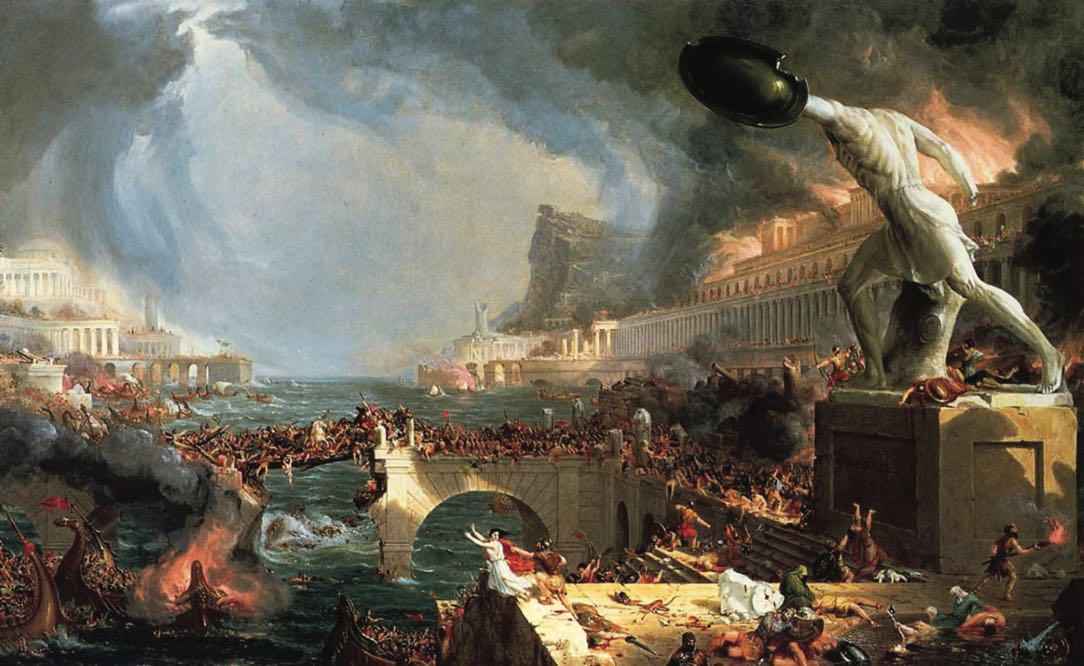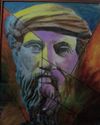
Perhaps the most famous allegory in philosophy is Plato's Allegory of the Cave, in which Plato, via Socrates, compares people who lack philosophical training to prisoners who have spent their entire lives in an underground cave and don't realise that there is a vast world beyond what they perceive. The Allegory of the Cave does not quite cut it as a myth, insofar as it lacks the sacred dimension that is the core of myth. But Plato did also write 'proper' myths into his Socratic dialogues, thereby - and unusually for the time - bridging the sharp divide between mythos and logos: between storytelling and reasoned discourse.
Plato didn't write dry analytical arguments, but lively fictional or semi-fictional dialogues, making him one of the most readable of all philosophers. His earlier dialogues feature Socrates questioning one or more people about the meaning of a particular concept, such as beauty, courage, or piety, in order to expose the contradictions in their assumptions and provoke a reappraisal of the concept - a debating method that has become known as the method of elenchus ('refutation') or the Socratic method. Into his dialogues Plato weaved myths, allegories, and metaphors. For instance, he famously compared the soul (aka mind - psyche) to a charioteer in a chariot pulled by two winged horses, one tame and noble (reason), the other wild and unruly (passion). All of his dialogues, with the single exception of the Crito, contain animal images, and Socrates himself is variously compared to a gadfly, a swan, a torpedo ray, a snake, a stork, and a fawn and outside the animal realm, to an empty jar filled with other people's ideas, and to a midwife, who helps pregnant souls give birth to wisdom. This is the voice of Meno, a young mercenary general with a philosophical bent, in Plato's Meno:
Esta historia es de la edición August/September 2022 de Philosophy Now.
Comience su prueba gratuita de Magzter GOLD de 7 días para acceder a miles de historias premium seleccionadas y a más de 9,000 revistas y periódicos.
Ya eres suscriptor ? Conectar
Esta historia es de la edición August/September 2022 de Philosophy Now.
Comience su prueba gratuita de Magzter GOLD de 7 días para acceder a miles de historias premium seleccionadas y a más de 9,000 revistas y periódicos.
Ya eres suscriptor? Conectar

FALLING DOWN
Thomas R. Morgan considers how personal identity is maintained, and how it is lost.

Pythagoras (570-495 BCE)
Daniel Toré looks beyond the mathematician to the philosopher.

Wordsworth & Darwin
Christine Avery wonders whether poetry can help us to deal with science.

Plants & Philosophy
Caroline Deforche sees similarities between gardening and philosophising.

Dr.Gindi sculptor, has a philosophical conversation with Richard Baron about sensation, life, infinity and, you guessed it, sculpture.
Dr. Gindi is one of Switzerland's foremost sculptors, whose work has been exhibited in many countries.

Thomas Aquinas on Extraterrestrial Life
Babatunde Onabajo tells us why Aquinas did not believe in aliens.

The Fire This Time
Tim Madigan on Ray Bradbury, Bertrand Russell and Fahrenheit 451.

Trust, Truth & Political Conversations
Adrian Brockless wants a recognition of human value in political debate.

Philosophy & The Crown
Vincent Di Norcia on monarchy and stability.

Technologists & Ethicists
Stephen L. Anderson laments inadequate moral insight among tech leaders.